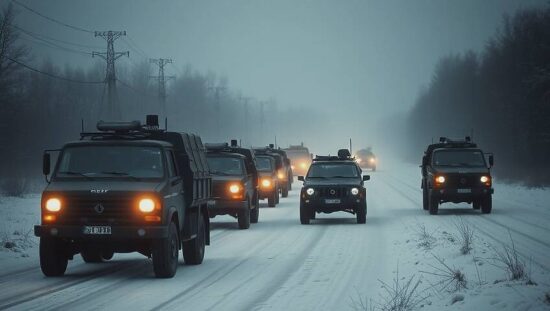Russia is reportedly bolstering its military presence in Ukraine and preparing for a potential war with the West, according to a recent assessment by the German Federal Ministry of Defence.
“We are observing that the Russian armed forces are not only compensating for their enormous personnel and material losses, but are actually successfully rearming” said Generalmajor Christian Freuding, head of the Planning and Leadership Staff at the Ministry of Defence, in an interview with the German newspaper Die Welt am Sonntag.
Freuding noted that the Russian army has been increasing its production of tanks, ammunition, rockets, and drones, with its stockpiles growing in military depots. While a Russian attack on the NATO alliance in the coming years is not considered likely, Moscow is creating the conditions for such an event, he added.
According to German security sources, Moscow is currently recruiting around 30,000 soldiers per month, with a goal of increasing the regular army to a total of 1.5 million active personnel. Russia is also producing around 3,000 glide bombs per month, some of which can weigh up to three tons, and has a significant output of drones, with firms and volunteers producing nearly 1.5 million First-Person-View (FPV) drones per year.
Marie Agnes Strack-Zimmermann, chair of the European Parliament’s Committee on Security and Defence, has described the Russian military buildup as a “giant threat” to Germany and Europe. “Russia has a formidable troop strength and a wide range of effective equipment” she said in an interview with Die Welt am Sonntag. Despite Western sanctions, Russia has been able to expand its arms industry and production capacities, although quality issues and dependencies on foreign technology have limited its success.
Defence expert Roderich Kiesewetter, a member of the Christian Democratic Union, believes that Russia’s hybrid attacks in Europe are a “prelude to war.” The Kremlin is preparing the battlefield, including through espionage activities and massive attacks in the information space. “I believe a Russian attack on a NATO country, for example, the Narva scenario, is very likely, rather in one to three years” he said in an interview with Die Welt am Sonntag.
Military analyst Nico Lange also considers a further Russian attack in Europe to be realistic. “Russian combined attacks with drones, cruise missiles, and rockets are unfortunately in the realm of the possible in the near future. Operations by special forces without insignia and surprise attacks against targets in Poland, the Baltic States, the Eastern Baltic, or the southeastern flank are also possible.





